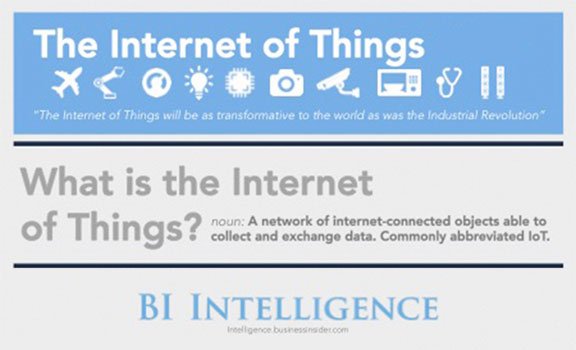IoT devices connected to the Internet will more than triple by 2020, from 10 billion to 34 billion. IoT devices will account for 24 billion, while traditional computing devices (e.g. smartphones, tablets, smartwatches, etc.) will comprise 10 billion.
And as we approach that point,$6 billionwill flow into IoT solutions, including application development, device hardware, system integration, data storage, security, and connectivity. But that will be money well spent, as those investments will generate $13 trillion by 2025.
One IoT device connects to another to transmit information using Internet transfer protocols.IoT platformsserve as the bridge between the devices sensors and the data networks.
As devices become more connected thanks to theIoT, security and privacyhave become the primary concern among consumers and businesses. In fact, the protection of sensitive data ranked as the top concern (at 36% of those polled) among enterprises, according to the 2016 Vormetric Data Threat Report.
And when you dig deep into the report, youll get the whole story in a clear, no-nonsense presentation:
Where data from IoT devices is stored.

The report gives a thorough outlook on the future of the Internet of Things, including the following big picture insights:
* Copyright © 2018 Insider Inc. All rights reserved. Registration on or use of this site constitutes acceptance of our
Displays information about the IoT ecosystem to users and enables them to control their IoT ecosystem. It is generally housed on a remote.
BI Intelligence, Business Insiders premium research service, expects there will be more than24 billionIoT devices on Earth by 2020. Thats approximately four devices for every human being on the planet.
Other Internet of Things Terms & Definitions:
All the components that enable businesses, governments, and consumers to connect to their IoT devices, including remotes, dashboards, networks, gateways, analytics, data storage, and security is part of theInternet of Things ecosystem.
While we can expect IoT to affect every industry one way or another, there are several environments within the three groups of consumers, governments, and ecosystems will benefit the greatest from theIoT. These include:
IoT Predictions, Trends, and Market
The internet communication layer that enables the entity to communicate with their device, and sometimes enables devices to communicate with each other.
The sizable security challenges presented by the IoT and how they can be overcome
Businesses will be the top adopter of IoT solutions because they will use IoT to 1) lower operating costs; 2) increase productivity; and 3) expand to new markets or develop new product offerings.
The four powerful forces driving IoT innovation, plus the four difficult market barriers to IoT adoption
This includes the protocols and interfaces that devices use to identify and communicate with each other.
Includes businesses, governments, and consumers.
Governments will be the second-largest adopters, while consumers will be the group least transformed by the IoT.
The following are some of the top IoT platforms on the market today:
In-depth analysis of how the IoT ecosystem will change and disrupt 16 different industries
BI Intelligence has compiled an exhaustive and detailed report on the Internet of Things that is your one-stop resource for all you need to know about the IoT.
Complete analysis of the likely future investment in the critical IoT infrastructure: connectivity, security, data storage, system integration, device hardware, and application development
Weve compiled a beginners guide of IoT terms and questions to help you navigate the increasingly connected world.
Any stand-alone internet-connected device that can be monitored and/or controlled from a remote location is considered an IoT device. With more smaller, more powerful chips, almost all products can be anInternet of Things devices.
The complex infrastructure of the Internet of Things distilled into a single ecosystem
The hardware that makes an IoT device, including sensors and networking gear.
The Internet of Things, commonly abbreviated as IoT, refers to the connection of devices (other than typical fare such as computers and smartphones) to the Internet. Cars, kitchen appliances, and even heart monitors can all be connected through the IoT. And as the Internet of Things grows in the next few years, more devices will join that list.
What is the Internet of Things (IoT)? Meaning & Definition
Who will reap these benefits? There are three major entities that will use IoT ecosystems: consumers, governments, and businesses. For more detail, see the Industries section below.
Software systems that analyze the data generated by IoT devices. The analysis can be used for a variety of scenarios, such as predictive maintenance.
There are literally hundreds ofcompanies linked to the Internet of Things, and the list should only expand in the coming years. Here are some of the major players that have stood out in the IoT to this point:
The important role analytics systems, including edge analytics, cloud analytics, will play in making the most of IoT investments
Nearly $6 trillion will be spent on IoT solutions over the next five years.
The most comprehensive breakdown of the benefits and drawbacks of mesh (e.g. ZigBee, Z-Wave, etc.), cellular (e.g. 3G/4G, Sigfox, etc.), and internet (e.g. Wi-Fi, Ethernet, etc.) networks
A vertical stack of three evenly spaced horizontal lines.
Enable entities that utilize IoT devices to connect with and control them using a dashboard, such as a mobile application. They include smartphones, tablets, PCs, smartwatches, connected TVs, and nontraditional remotes.
What is the Internet of Things? Meaning & DefinitionYouve likely heard the phrase Internet of Things or IoT at some point, but you might also be scratching your head figuring out what it is or what it means.
Responsible for transmitting the data collected by the physical layer to different devices.
Cyber attacks are also a growing threat as more connected devices pop up around the globe. Hackers could penetrate connected cars, critical infrastructure, and even peoples homes. As a result, several tech companies are focusing on cyber security in order to secure the privacy and safety of all this data.
